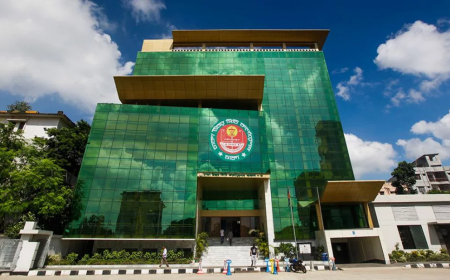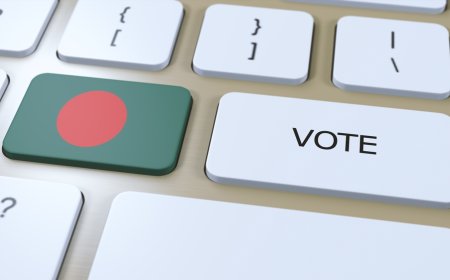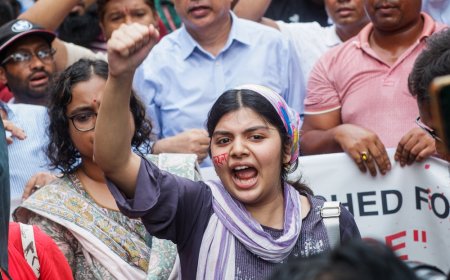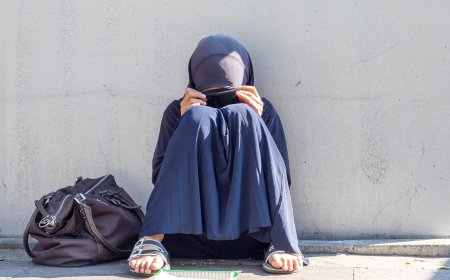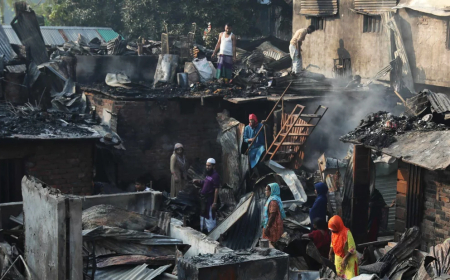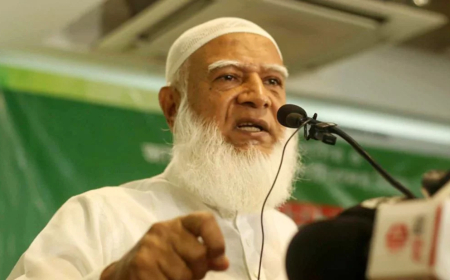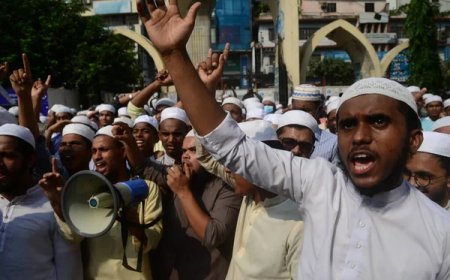Why is the Interim Government Targeting the Legacy of 1971?
An interim government, by definition, should not be working to any ideological agenda. But the Yunus regime appears to be doing precisely that.

At a time when the interim government should be looking to add feathers to its cap, it appears to be busy dismantling the credibility it had when Muhammad Yunus took oath of office as Chief Adviser last year. Furthermore, this is happening on an issue that need not have any adverse impact on the purpose and functionality of the current regime.
With elections less than six months away, the government should be calming nerves and building bridges. Instead, they appears to be targeting the Liberation War of 1971, which is as baffling as the suppression of dissenting views is worrying.
The latest such action was the arrest of former bureaucrat Bhuiyan Shafiqul Islam, who was detained on September 9, in an “anti-terrorism” case related to Moncho 71, a platform recently launched to promote what they term as “the spirit of the liberation war.”
State prosecutors have described Moncho 71 as a “terrorist organisation,” without providing a shred of evidence about their alleged “terrorist” activities. Islam’s arrest follows the arrest of another former bureaucrat Abu Alam Shahid Khan, who was picked up from his home in the early hours of September 8.
These arrests are a cause for concern at multiple levels. Khan has been a vocal critic of the Yunus-led government in recent months, with regular appearances on television talkshows. He was picked up from his home at the dead of night - in a kind of “midnight raid” more associated with authoritarian regimes.
This is happening at a time when the interim government in Dhaka would like the world to believe it is ushering in a new era of democracy and rule of law in Bangladesh, following the overthrow of Sheikh Hasina’s Awami League government in the face of widespread protests on August 5 last year.
Khan and Islam’s arrests are not isolated incidents. They come just 10 days after a mob attacked a seminar organised by Moncho 71 at the Dhaka Reporters Unity office. The mob held a number of participants hostage untilpolice arrived. But instead of taking action against the mob, the police proceeded to detain the seminar speakers.
The detainees were initially told they were being taken into custody for their own protection. But by 10pm, it became clear to them that there was something more to their detention than safety. They were informed that a case, under the country’s much-criticised Anti-terrorism law had been filed against them.
Next day, they were taken to the Magistrate’s court where they were denied bail and sent to jail.
Concerns Over 1971
Not all those sent to jail were linked to the Awami League, whose activities have been banned by the Yunus government. Veteran politician Latif Siddiqui was indeed an AL leader, but he was expelled from the party and sent to jail in 2014, for, among other things, terming the Islamic pilgrimage Hajj “a waste of money” during a program in New York.
Other detainees included journalist Manjurul Alam Panna, who is not known to have any ties to the AL. He was vocal against the Hasina regime last July on his social media, and he has been vocal on his YouTube channel against what he sees as misgovernance by the Yunus regime.
The concerns that people like Siddiqui and Panna have are not without basis.
Over the past one year, the country has witnessed many steps that appear to be attempts to erase the name of Sheikh Mujib, the country’s independence leader, and dilute the importance of 1971. These included removal of statues and photos, changing of names of roads and buildings, cancellation of holiday, dropping of historical references, change in school curriculum, etc.
The government’s failure to prevent or take action against perpetrators of pure vandalism who destroyed the Bangabandhu Memorial Museum in Dhaka’s Dhanmandi or those who smashed sculptures celebrating the Liberation War, spoke volumes about their intentions.
Ghost Named Mujib
Some of these acts --which sought to diminish the importance of Sheikh Mujib in national life -- were carried out by the government itself, such as the cancellation of the August 15 holiday. The Chief Adviser’s addresses to thenation treat Mujib as a ghost who cannot be acknowledged. It is a name that has become invisible in all government communications.
The storm of vandalism unleashed against Mujib’s statues in the wake of Hasina’s flight to India last year was initially seen as an outpouring of popular anger against her fallen regime. There were good reasons for it too.
In the centenary of Mujib’s birth in 2020, the government spent billions of Taka to produce books, films, stage events and build monuments to glorify the country’s founding leader. But, in the backdrop of Covid, followed by downturn in the economy, all this expenditure and adulation appeared grotesque to many.
The AL had gone tone-deaf and there was a price to pay.
But there did not appear to be any reason why Professor Yunus should display such antipathy towards 1971 and Mujib’s legacy. An interim government, by definition, should not be working to any ideological agenda.
The Islamist far-fight in the country have traditionally pedalled an anti-Liberation War narrative, by implying 1971 was designed to impose Indian hegemony on Bangladesh. The far-left often aligns with the far-right when it comes to demeaning and delegitimizing Sheikh Mujib’s leadership in the independence movement.
Ironic Accusations
There is no doubt that the far-right and far-left played a major role in last year’s anti-Hasina movement. Even then it could be argued that, the interim government’s authority would not be hindered if it acknowledged 1971 as the fountainhead of Bangladeshi nationhood and Sheikh Mujib as its inspirational leader.
But the warning signs came early when the government cancelled commemoration of Mujib’s death last year. Their promotion of the 2024 uprising as a “second independence” was seen by many as an attempt to undermine 1971.
Instead of uniting the nation, their actions risk dividing people in the same way Hasina did last year with her “Muktijoddha” versus “Razakar” binary.
There is a certain irony to all this.
Over the past couple of decades or so, the AL was accused of attempts to “monopolize” the credit for the liberation war. The AL’s politics developed a“pro-liberation” versus “anti-liberation” binary. Political parties such as the BNP were often at pains to defend themselves against accusations of being “anti-liberation.”
Similarly, the AL was also accused of hypocrisy over Sheikh Mujib. Even though Hasina made it her life’s mission to re-establish Mujib as Father of the Nation, critics accused her of turning her father into an AL party icon. In order to promote Mujib’s legacy, Hasina was seen as undermining other towering figures from Bangladesh’s history of struggle for freedom.
It is ironic that, since last year, anyone championing the memory of the Liberation War or the legacy of Sheikh Mujib is instantly accused of being an “Awami lackey.” It appears that Awami League’s critics, who rule the roost in present-day Bangladesh, are themselves equating the legacy of 1971 and Mujib with the AL, thus giving credence to Hasina’s false claim that only her party bears the torch for the Liberation War.
The interim government probably feels it needs to play to the far-left and far-right Islamist galleries in order to secure its position. The government may also be banking on the possibility that the generation which overthrew Hasina has no emotional bond with 1971. The recent victory of Islami Chhatro Shibir in Dhaka and Jahangir Nagar university polls tend to bolster that assessment.
But there is a danger that the longer the government and its supporters target 1971 and Mujib, the wider and deeper the division in society will become.
The writer is former Head, BBC Bangla and former Managing Editor, VOA Bangla. He can be contacted at: [email protected]
Follow on X: @Sabir59
What's Your Reaction?












